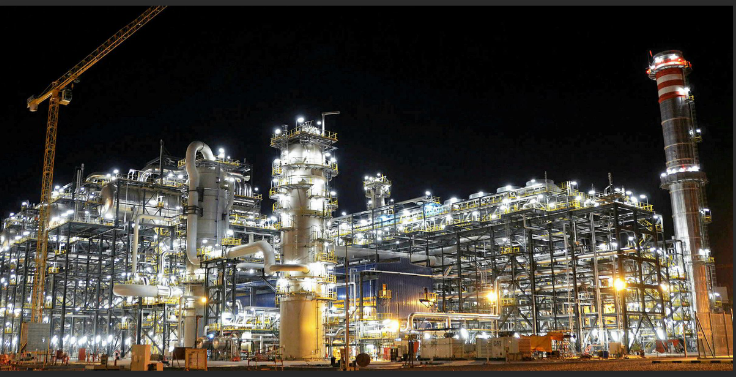Oil & Gas
THE 10 LARGEST SOUR GAS FIELDS IN THE WORLD.
Irene Jerry

Sour gas, characterized by its high content of hydrogen sulfide (H2S), is anticipated to see a substantial production increase exceeding 50% over the next decade. This surge is pivotal as sour gas is expected to support a robust $10 billion global sulfur market annually. This type of natural gas plays a crucial role in various sectors, including agriculture and industrial applications, along with significant contributions to international trade.
The following is a list of the top 10 sour gas fields in the world, which shed light on their gas reserves, hydrogen sulfide levels, dates of discovery of those fields and the main companies developing these discoveries, as well as the exploitation of sulfur resulting from the processing of this gas, according to Oil & Gas Middle East
-
Shah Field (UAE)
- Reserves: 480 billion cubic meters
- Hydrogen sulfide content: Approximately 23%
- Managed by: Abu Dhabi National Oil Company (ADNOC) and Occidental Petroleum
- Sulfur use: Production of fertilizers and chemicals, exported internationally
-
Ghawar Field (Saudi Arabia)
- Reserves: Extensive, largest oil field in Saudi Arabia
- Sour gas: Up to 15% hydrogen sulfide
- Managed by: Saudi Aramco
- Sulfur use: Local chemical production and international exports
-
North South Gas Field (Qatar and Iran)
- Reserves: 51 trillion cubic meters
- Hydrogen sulfide content: Varies
- Jointly developed by: National Iranian Oil Company (NIOC) and Qatar Energy
- Sulfur use: Global fertilizer production and industrial applications
-
Khuff Formation Field (Saudi Arabia)
- Reserves: 8.5 trillion cubic meters
- Hydrogen sulfide content: Up to 20%
- Managed by: Saudi Aramco
- Sulfur use: Various industrial applications and export
-
Khursaniya Field (Saudi Arabia)
- Reserves: Significant
- Hydrogen sulfide levels: 10% to 15%
- Managed by: Saudi Aramco
- Sulfur use: Domestic demand for chemicals and fertilizers
-
Badreddine Field (Egypt)
- Reserves: Large
- Hydrogen sulfide levels: 5% to 10%
- Managed by: Egyptian General Petroleum Corporation and Apache
- Sulfur use: Domestic industries and export markets
-
Shortan Field (Uzbekistan)
- Reserves: 480 billion cubic meters
- Hydrogen sulfide content: Up to 15%
- Managed by: Uzbek Oil and Gas and Lukoil
- Sulfur use: Domestic chemical industries and exports
-
Hassi Raml Field (Algeria)
- Reserves: About 2.4 trillion cubic meters
- Hydrogen sulfide content: Around 10%
- Managed by: Sonatrach
- Sulfur use: Local fertilizer production and export
-
Tengiz Field (Kazakhstan)
- Reserves: Over 700 billion cubic meters
- Hydrogen sulfide content: Up to 18%
- Developed by: Chevron, ExxonMobil, and KazMunayGas
- Sulfur use: Diverse industrial applications and international exports
-
Orenburg Field (Russia)
- Reserves: About 425 billion cubic meters
- Hydrogen sulfide content: 8% to 12%
- Operated by: Gazprom
- Sulfur use: Local industries, fertilizer, and chemical production.
